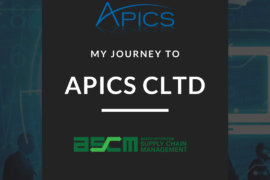Introduction
It is a great pleasure that today we are publishing the second episode of our talk show “Talks” and I would like to thank both our interviewee of the day and all followers of SAP Steps.
The idea of this interview is to talk both to people who are directly connected to the SAP world (Consultants, Project Managers, etc.), as well as to interview people who are on the “business” side and who have been or are going through SAP projects.
Moisés is an experienced SAP Consultant and operates in one of the largest Brazilian banks in Brazil and Latin America.
Below, I will transcribe the chat we had about the SAP FSCD module, which is not very well known by many people.
Interview
Bruno César: Good morning Moisés, how are you? First of all, I would like to thank you for participating in our series of interviews.
The purpose today is to pass the SAP FSCD module view to SAP Steps readers. To be honest, this is a module that has been increasingly talked about in the market, but my perception is that few people are experts in this module, which ends up bringing a lot of curiosity about the subject.
To start, could you tell us a little about yourself, what do you do? Feel free to say what you want.
Moisés Amorim: Good morning Bruno … Well, while on the project, we work to ensure that all customer demands can be met with maximum adherence to the Standard solution, and when this is not possible, we design a solution that can be easily built, implemented, and easy to maintain. While in production, I work on maintaining the problems that affect the system, part of them due to external agents and many others due to process design errors.
Bruno César: And, how did you get started in the SAP world? Can you tell me a little about your career? The types of companies you passed, how did you acquire the knowledge you have today, etc.?
Moisés Amorim: Bruno, I’ve been in the IT industry since 1997, as a programmer and systems analyst, wherein 2007 the system I worked on would be replaced by SAP, that’s where I had the first opportunity to contact SAP, I sought qualification and started with SAP in the industry Utilities, starting with the FI-CA module and I stayed there for a long time, switching companies … I also worked with the FI module in some other industries and, in 2013, I joined the insurance industry (FSCD), where I am today, 2020. During that period, I worked in several industries, such as Energy (FI-CA), Sanitation (FI), Agro (FI), Electronics (FI), and lastly insurance (FS-CD).
Bruno César: After hearing a little bit about you, I wanted to get into our topic today, which is SAP FSCD. At the time we met in 2012, we are on a very challenging project within Syngenta. At that time I remember that you worked as an FI Consultant. How was this transition of modules for you?
Moisés Amorim: True … it’s been a long time, right … it was at that time in FI, specifically in a Fiscal solution, SPED. I had already worked with the FI module, I even had the opportunity to design a tax solution in another project, which qualified me in these solutions, but in 2013, I joined the FS-CD module, which uses the same CORE as FI-CA, which simplified entry into the segment, leaving the challenge of learning more about the insurance area, which until then, in this industry, I had not acted.
Bruno César: Today, what are the main types of companies that use SAP FSCD?
Moisés Amorim: The FS-CD is aimed at the insurance segment and in Brazil, the largest companies are already adopting the solution.
Bruno César: And how is the implementation of this module? I have heard that for a good implementation many ABAP developments are necessary, due to the complexity of the companies that use it (insurance area mainly), is this true?
Moisés Amorim: That’s right, the projects tend to last long, precisely because of the complexity of the products (insurance). Many peculiarities are not offered as a standard. In addition to the ancillary obligations with the regulatory bodies, which, invariably, end up triggering a series of ABAP developments.
Bruno César: In your view, what are the biggest challenges in implementing this module?
Moisés Amorim: The Volume of bank charges and Payments is something expressive, which in addition to being concerned with the correct functioning, we must also be concerned with performance. In general, in all the projects I went through, the number of GAPS is very large, precisely because SAP does not have an adherence to the business needs of Brazilian companies, other GAP´s are improvements that prove to be timely and add value and time to the process as a whole.
Bruno César: So far, what has been the most difficult project you’ve had? It’s because?
Moisés Amorim: Undoubtedly the most difficult was at Embasa, in 2010. In this project, we had the mission of meeting the delivery of 16 accessory obligations, at the federal, state, and municipal levels. It was quite a challenge. Our team of ABAP programmers was of the highest quality (Douglas, Dr. Patricia, and Jaqueline) were fundamental to success. Although in the beginning, we did not know everything we needed to deliver, we started the studies seriously, with a lot of support from the client, friend Marcos Vinicius, that without him this would not have been possible … it was almost 6,000 hours of development, we delivered on-time and functional. For me, it was a source of pride to be part of this team.
Bruno César: Do you have any tips for a consultant from another module that wants to migrate to the FSCM module?
Moisés Amorim: FS-CD does not have as much literature or training, this makes it a little more restricted, I was lucky to have the opportunity to “learn by doing”, I think the tip is the same as always, dedication, dedication, and more dedication.
Bruno César: Are there many projects in this area? How long do they usually last?
Moisés Amorim: There are not many projects, Bruno, I think that in Brazil, less than 10. And they are long projects, it is difficult to start at the beginning of the project, even from FI-CA, they are long projects and I haven’t seen a project in a long time, only maintenance and improvements. A lot due to regulatory demands. The projects are not less than 4 years old, implementing Billing and Payments.
Bruno César: Now thinking in terms of career. If you look back and think about all your years as a consultant, would there be anything you would have done differently? If so, why?
Moisés Amorim: Oh yes, it should have started much earlier in SAP. I think that for me, as I had previous experience as a programmer, a lot ended up being easier, but I think it is always good to know technical points, to be able to debug without spending all the time of the programmers, this helps a lot.
Bruno César: Any tips for a person thinking about becoming a consultant?
Moisés Amorim: Do not skip steps. Try to start your training from the basics, don’t waste any opportunity to learn. There is a lot of good content on the internet, but face-to-face courses can help you learn faster. Sometimes for those who want to join SAP, it is necessary to change their position, starting at the first step, which for many does not seem very logical, but I think that if you want to change careers, you need to invest, and not only in training, but to consolidate this training into practice in projects or AMS.
Bruno César: Moisés, I want to thank you for your participation. It was a great pleasure to have you here answering so many questions! Is there anything else you would like to add before we close?
Moisés Amorim: Imagine Bruno, I thank you for the opportunity to talk a little about my experience. In addition, seeking qualification without skipping steps and a lot of dedication will certainly achieve your goals whoever does so.
Bruno César: That’s it for today guys, I thank you very much for the presence of our guest Moisés Amorim (a great friend) and I hope you all enjoy the chat we had today.
Conclusion
I hope you enjoyed our second interview (of many) on our Talks program.
If you liked this content and invite your friends to sign up for our newsletter.
In case you have any suggestions (including subjects you would like to read about or possible candidates to be interviewed), feel free to send an email to sapsteps@sapsteps.com.
A big hug,
Bruno César



